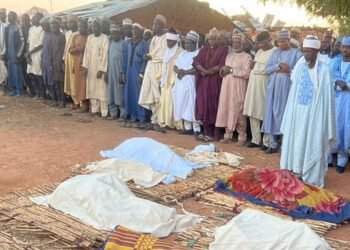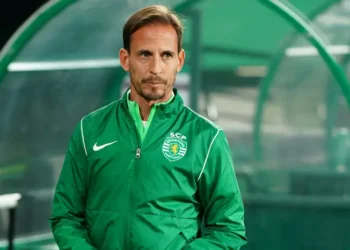56-year-old Queen Salawa Abeni is a bag of stories—the good, the bad and the ugly. For one who was on the brink of collapse and back to her glorious career after a six-year sudden halt, here is celebrating her victory, her recovery and her restoration. In this interview with LOVEHAVEN Magazine’s latest edition, QSA bares it all
Why were you off the entertainment scene for some years?
I was ill for like five or six years. It started in 2008 and I didn’t recover until six years after. I was not performing on stage and other social events. Suddenly, I became terribly ill and couldn’t go out. I could not think of work because I could not walk—I was paralysed. All I thought of then was getting back on my feet. I kept praying to Allah to help me catch up with the lost years.
What was the nature of the illness?
I cannot really explain what happened but it was paralysis and was extremely bad. I could neither walk nor do anything. I thank Almighty Allah because not everyone could go through what I went through and still survive. Thank God for my siblings, my children, my band boys, Asiwaju Bola Ahmed Tinubu, former Governor Fashola and now Governor Ambode, who later took the responsibilities upon him after my recovery. To be out of work as an entertainer for six years is no joke. My band boys stood by me and they didn’t go! It’s not easy to hold down band boys for five/six years and think they would still work for you.
But what was going through your mind on your sick bed?
Then, I kept asking God and myself how was I going to make it again? How and when would I recover? Would I ever walk again? Is this how Ibiwunmi Salawa Abeni would end? Would everything be restored again? It was a trying time because I sold all that I had due to the illness.
Did you call out to friends and fans?
The illness started briefly and we all thought I would be fine in no time. Of course I had friends and initially I didn’t even think of calling out because I thought it would soon be over. But when it became unbearable and I started selling off my things—houses, cars, jewellery etc— I started calling out to friends. It was a challenging time for me but thank God, I’m fully back and restored now.
What do you think must have triggered off the illness?
Well, I think it started when I lost my son, Lanre. I started having high blood pressure and then other symptoms cropped up. In my sick bed, I knew I would not die because my late mum, who was alive then would pray for me and say I would be the one to bury her and not vice versa. She died two years ago at 98 years old.

It must have been a tough time for you and your family?
Yes, it was. I started to sing as a teenager and I had hustled, suffered and when I was about feeding fat on the proceeds of my labour, the devil struck. I prayed and kept telling God that He should allow me eat the fruits of my labour. At a point, everything was exhausted including money. That was when I started calling people to give me money. Some responded, some didn’t and would ignore my call. They were like, ‘Salawa is ill, she needs money, that’s why she is calling.’ I cried but I kept trusting God.
What about your fans? Weren’t they worried that you were out of reach?
They became worried and kept sending messages via text messages and through the social media. I was flown abroad at a stage and when I returned and was still recuperating, I saw some of my fans who asked me if I was still singing again. I was hurt! I knew I was far behind but I kept telling God to help me. Many of my fans who knew me when I was a teenager, to becoming a wife, mother and now grandmother stood by me and said, ‘we would do everything to see that you don’t die with your talent.’ My children also stood by me. I prayed to Almighty Allah that after the death of Idris Olanrewaju, God should never allow me see the death of any child again. He should allow me eat the fruit of my labour—these children are God’s gifts to me.
How did you sail through this trying period?
God sent me helpers. I would forever remain grateful to Asiwaju Ahmed Bola Tinubu—he is a father. His mother, Mama Abibatu Mogaji was my mum. I knew mama when I was very young. I was at the bandstand when she was 70, 75 and 80 years respectively. Mama would cook and send stews and soups to me. Mama would give me money. She treated me like a child. As old as Mama was when she saw that I could not walk again, she would send people to pray for me and always checked on me.
Then, there was Alhaji Ayinde Barrister, who was a pillar of support for me. I called and told him, ‘Dad, I slept and woke up seeing myself this way.’ I called him Daddy and he requested for my home address after the call. He came to my house and immediately he entered, I started weeping. Alhaji Barrister said, ‘Ibiwunmi, don’t cry because I know you would be the one to bury me, not the other way round.’ The father-daughter love between us has extended to his children, who love me to bits. He was a good father.


Did you reach out to other musicians?
Some ran away, some didn’t even pick my calls. After my recovery, some told me that they didn’t know where I was and could not locate me. During my illness, I learnt this— learn to help one another. It’s foolhardy to wait for a fellow artiste to die before donating money for burial or to give to the family. Render help while someone is alive and don’t shed crocodile tears at burial. I don’t pray for anyone to be ill or die—it’s terrible. But then, I never took offence in anyone. I was just praying to God to restore me.
Were you so close to your son that his death hit you to the extent of being ill?
The problem started when I lost Lanre. I lost everything with him— the volumes 1- 15 of my LPs are still with his late father’s recording company and none is ready to release them to me. His death was a big blow. I didn’t know I would survive. He was the only bond between his late father, Lati Adepoju, and I. My concern now is to get my career back. Though many of my fans know that I am back and they are supporting me, I don’t want my career to perish. I desire to be old and be a legend, whose music would outlive her. I am still a young woman, my children are still young but I want my career to soar and make impact in the lives of younger generations. I know Salawa Abeni is a talent that can’t be wasted.
After your recuperation, what and where was your first performance?
It was a burial party in Lagos. I was not feeling too fine but then, I managed and sat down throughout my performance. After the party I wept. I knew my voice was intact, the composition of songs was okay but I could not perform as Queen Salawa Abeni. I prayed and told God, ‘this is not Ibiwunmi, help restore my energy and vitality.’ God did that and I can now dance and stand throughout any performance.
What lured you into music?
That was in 1974 when I was 13 years old. I was staying with my guardian in Igbogun. As children, we would play outside and tell moonlight stories and anytime I heard music, I would listen to the radio and to the music of Ebenezer Obey, King Sunny Ade and many others. The programme was called ‘E je ka lo sun’ and it was on Radio Lagos. Then, I would leave my friends and go to listen to the programme. One day, I prayed and told God, ‘I want to be a star, I like to be singing and be famous.’
I thought I said my desire as a child but God heard me and in 1976, I recorded my first song and another one again in 1976. I did “Ibilere” (volume 3). I have done 42 albums thus far.
You were married to and divorced from another artiste, Alhaji Ayinla Kollington?
I don’t want to talk about this because our marriage produced children.
How did you cope with the stigmatization of female musicians in your time?
I don’t listen to what people say, I listen to my heart. Though many critics said many things, I refused to be moved. Every woman is called a prostitute. If you want to succeed in life, you don’t listen to negative comments. God has blessed me with a rare favour of having friends that are more educated and richer than me. This has helped my life’s journey. My attitude of not giving a hoot to negative comments helped me. Some people have called me a prostitute but I have my children, my career and God is proving Himself in my life. It’s my career and I have chosen my path in life.
Are there younger musicians you are mentoring?
Yes, the younger ones see me as their mum and would always tell me that their mums love my music. There are many women singing and some chose Fuji, Waka, Juju etc but we are all under the canopy of entertainment. Some male artistes see me as their mentor too and they respect me. I pray to be a legend in this industry.
What’s the secret behind the lovely voice?
It’s God. The voice amazes me too. Even while ill, the voice remained beautiful.
Apart from Big Sheff, who else sings among your kids?
My sons sing but only Big Sheff took up music as a profession. My daughter, Amina, sings well too but she is not into music. My kids are lucky because both their father and I are into music.
What’s your routine like?
Since I returned fully to entertainment, my weekends are always busy but I still take time to pray. It’s been a great time and as a grandma, I have my hands full too. I just welcomed twins from my children abroad and would soon travel to see them.
Is there a particular way of dressing you embrace?
Not really but most occasions I attend would have aso ebi that we would all wear together. There is no particular mode of dressing for me but I love comfort. I dress to be comfortable.
Are you on drugs to perform well at gig?
I have never taken drugs in my life. I have never taken beer. I don’t smoke. My son, Big Sheff doesn’t drink too. I know of artistes who don’t drink or smoke. I am close to Obesere Abass and I can proudly say he doesn’t drink or smoke. His energy on stage beats my imagination but he is not on drugs.
At 56, are there regrets?
None. I thank God because he chose the best career for me. Music has opened doors for me and my family. God has done many uncountable deeds in my life that amaze me. That I can sit and have an interview today beats my imagination—that sickness almost ruined my career. But God brought good people my way. Some sent money; some showed love, and some offered help that I never believed could come my way. It was a trying period but I thank God, who stood and still stands by me. I was down, I was out, I was pauperised but God saw me through. My prayer today is that no parents would lose any child in their lifetime. Any parents (s) that has (have) experienced it, may Allah comfort us all and not allow such happen again. My son, Lanre, died October 2, 2000 but I pray the wound heals permanently. It’s not good for a child to die before the parents. May that evil be averted in all homes by God’s grace.
Any message for your fans?
They have been my fulcrum of support. I love my fans because God has used many of them for me. They have helped me financially and in many unbelievable ways. I don’t want them to stop with my career because the organization is still challenged in many ways. I have released a single called “Recovery”. I also released an album for the Lagos State government and I am getting set for 2018. By God’s grace, Ibiwunmi Abeni Salawa shall soar in 2018. I thank God for the Lagos state government—it’s the only government that opens its doors to entertainers. But for Lagos State government that uses entertainment to tell the Lagos story and engages artistes in many of their programmes, entertainment would have nose-dived and many artistes begging for food.








